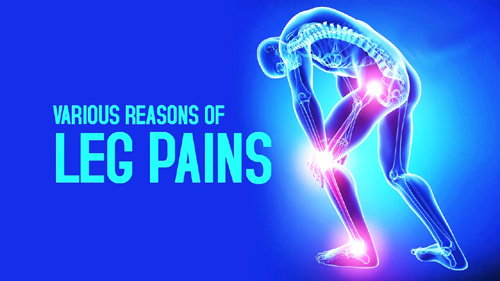కూల్డ్రింకుతో డయాబెటిస్ ఉచితం
ఇంతవరకూ మీకు చక్కెర వ్యాధి రాలేదని సంతోషంగా ఉన్నారా! రోజుకి ఒక కూల్డ్రింక్ మించి తాగడం లేదని మురిసిపోతున్నారా! అయితే తాజా పరిశోధనలతో మీ అలవాట్లను సరిదిద్దుకోక తప్పదు. తాగేది డైట్ కూల్డ్రింకే అయినా మరింత జాగ్రత్త వహించకా తప్పదు... వేలమందిని పరిశీలించి స్వీడన్లోని కరోలిన్స్కా పరిశోధనాశాలకి శాస్త్రరంగంలో గొప్ప పేరుంది. గత ఏడాది ఆ సంస్థ 2,874 మంది అభ్యర్థులను వారివారి ఆహారానికి సంబంధించిన అలవాట్లను నమోదు చేయమని అడిగింది. ఏడాదిపాటు అలా నమోదు చేసిన సమాచారం ఆధారంగా వారి ఆహారపు అలవాట్లకీ, డయాబెటిస్కి మధ్య ఉన్న సంబంధం ఉందేమో అన్న విషయాన్ని పరిశోధించింది. ఎంత తాగితే అంత అవకాశం రోజుకి 400 ఎం.ఎల్ తాగిన వ్యక్తులకి డయాబెటిస్ వచ్చే అవకాశం రెట్టింపుగా ఉన్నట్లు ఈ గణాంకాలు స్పష్టం చేశాయి (సాధారణంగా ఒక బాటిల్ కూల్డ్రింకులో 300 ఎం.ఎల్కు పైగా పానీయం ఉంటుంది). ఇక ఏకంగా రోజుకి లీటరేసి తాగే వ్యక్తులకయితే డయాబెటిస్ ప్రమాదం దాదాపు ఐదు రెట్లు ఎక్కువగా ఉన్నట్లు తేలింది. దీంతో ఇప్పటికే ఊబకాయం, సంతానం కలుగలేకపోవడం వంటి సమస్యలకు కూల్డ్రింక్ కారణం అంటూ వినిపిస్తున్న ఆరోపణలకి మరో అపవాదు తోడయినట్లయ్యింది. కారణాలు స్పష్టమే! - కూల్డ్రింకులలో ఉండే తీపి పదార్థాలు మన శరీరంలో కొవ్వు పేరుకుపోయేందుకు తోడ్పడతాయి. ఈ కొవ్వు ఊబకాయానికీ, ఊబకాయం చక్కెరవ్యాధికీ దారితీస్తుంది. - శీతల పానీయాల్లో ఉండే కృత్రిమ తీపి పదార్థాలు మన జీర్ణాశయంలో ఉన్న మంచి బ్యాక్టీరియాను నాశనం చేస్తాయి. ఇలా జీర్ణవ్యవస్థ దెబ్బతినడంతో డయాబెటీస్ ఏర్పడే వాతావరణం సానుకూలం అవుతుంది. - కూల్డ్రింక్లలో ఉండే అధిక చక్కెర వలన మన శరీరంలోని జీవక్రియ (మెటాబాలిజం) దెబ్బతింటుంది. దీని వలన శరీరం ఇన్సులిన్ను గ్రహించే సామర్థ్యాన్ని కోల్పోతుంది. ఫలితంగా టైప్-2 డయాబెటిస్ మన మీద దాడి చేస్తుంది. డైట్ కూల్డ్రింకులతోనూ నష్టమే చాలామంది సాధారణ కూల్డ్రింకులతో నష్టం కదా అన్న భయంతో డైట్ కూల్డ్రింకులని సేవిస్తూ ఉంటారు. అయితే డైట్ కూల్డ్రింకులు కూడా డయాబెటిస్కు కారణం అవుతున్నాయని పైన పేర్కొన్న పరిశోధనలో తేలిపోయింది. ఎలాంటి కేలొరీలు లేని డైట్ కూల్డ్రింకులు తీసుకోవడం వల్ల ఆకలి పెరుగుతుందనీ, ఏవన్నా తీపి పదార్థాలు తీసుకోవాలని మనసు లాగుతూ ఉంటుందనీ... ఫలితంగా వారు కూడా ఊబకాయులు కాక తప్పదనీ తేల్చి చెబుతున్నారు. - నిర్జర.
read moreవింతల్లోకెల్లా వింత... మన మెదడు!
మెదడు ఒక గొప్ప అవయవం. ఒక సూపర్ కంప్యూటర్ కు ఉండేంత సామర్ధ్యం మన మెదడుకి ఉంటుంది. కానీ, ఆ మెదడుకి కూడా కష్టాలు వస్తాయి. రోజులు గడిచే కొలది, మెదడులోని కణాలు నశిస్తాయి. తద్వారా, మతి మెరుపు రావడం, ఏకాగ్రత తగ్గిపోవడం లాంటి సమస్యలు ఏర్పడతాయి. ఒక్కోసారి అల్జీమర్స్ వచ్చే ప్రమాదం కూడా ఉంది. మరి మెదడులోని కణాలు నిర్వీర్యం కాకుండా ఉండాలంటే ఏం చేయాలో తెలుసుకోవాలంటే ఈ వీడియో చూడండి...
read moreఇవి తింటే డాక్టర్ అవసరం లేకుండానే మీ కంటి చూపు 100% పెరుగుతుంది
కంటి చూపు మెరుగుపరుచు కోవాలంటే ఎలాంటి ఆహరం తీసుకోవాలి? ఈ రోజుల్లో పెద్దల దగ్గరి నుండి పిల్లల దాకా ఎక్కువ సమయం స్క్రీన్ మీదే గడుపుతున్నాం. సెల్ ఫోన్ చూడడం, లాప్ టాప్ తో టైం గడపడం, లేక టీవీ చూడడమే చేస్తున్నాం. తద్వారా కంటి సమస్యలు ఎక్కువవుతున్నాయి. మరి కంటి ఆరోగ్య రక్షణ కోసం ఎలాంటి ఆహరం తీసుకోవాలో తెలుసుకోవాలంటే ఈ వీడియో చూడండి... https://www.youtube.com/watch?v=ypQMGG7G9Yc
read moreమరణంతో టీ కి లింకేం"టి"..?
మీకు టీ తాగే అలవాటుందా? ఒకవేళ లేకపోతే త్వరగా చేసుకోండి. ఎందుకంటే, టీ తాగే వారిలో మరణం సంభవించే ప్రమాదం చాలా తక్కువ అంటున్నారు పరిశోధకులు. వారి పరిశోధనలో టీ తాగడం వాళ్ళ మరణాలు 24 % తగ్గుతాయని వెల్లడయిందట. అయితే దీనికి ఒక మినహాయింపు మాత్రం ఉంది. అదేంటి? ఇంతకీ ఆ పరిశోధన సారాంశం ఏంటి? టీ ని సంజీవనితో ఎందుకు పోలుస్తారు? ఈ విషయాల్లో అవగాహన కోసం ఈ వీడియో చూడండి... https://www.youtube.com/watch?v=Utg97swWhrk
read moreVarious Reasons of Leg Pains...!
కాళ్ల నొప్పులు ఒక్కొక్కరికి ఒక్కోలాగా ఉంటాయి. కొందరు తాము కనీసం కాలు కదపలేకపోతున్నామని, ఇంకొందరు కాలు కనీసం స్ట్రెచ్ చేయలేక పోతున్నామని బాధ పడుతుంటారు. అయితే కాళ్ల నొప్పులు రాకుండా తగిన జాగ్రత్తలు తీసుకోవడం మంచిది. ఈ విషయంలో సులభతర చిట్కాల కోసం ఈ వీడియో చూడండి... https://www.youtube.com/watch?v=t2izreSt7ts
read moreజామకాయ తింటే బరువు తగ్గుతారా..?
రోజుకో ఆపిల్ తింటే రోగాలన్నీ తగ్గిపోతాయి అంటుంటారు. కానీ, ఆపిల్ సామాన్యులకి అందుబాటులో ఉందని పండు. పైగా డయాబెటిస్ ఉన్నవాళ్లు ఆపిల్ తినడం శ్రేయస్కరం కాదు. మరి అందరికీ అందుబాటులో ఉంటూ, ఆరోగ్యానికి మేలు చేసే ఫలం ఏది అంటే జామకాయ అని చెప్పొచ్చు. మరి జామకాయ వల్ల ఆరోగ్య ప్రయోజనాలు తెలుసుకోవాలంటే మాత్రం ఈ వీడియో చూడండి... https://www.youtube.com/watch?v=88N0gDujhMA
read moreఎంత లావుగా వున్నా పుల్లాల్లగా చేసే ట్రిక్స్.. టిప్స్...!
బరువు తగ్గడం వల్ల చాలా ఆరోగ్య ప్రయోజనాలుంటాయన్న విషయం మనకు తెలిసిందే. అయితే బరువు మన శరీరంలో ఒకే ప్రదేశంలో ఉండడం వల్ల చాలా సమస్యలు ఎదురవుతాయి. పొట్ట ఎక్కువ ఉన్న వాళ్ళు తమ శరీరంలో సుబ్క్యుటేనియస్ కొవ్వు ఎక్కువగా ఉందా లేదా విసెరల్ కొవ్వు ఎక్కువగా ఉందా అని తెలుసుకోవలసిన అవసరం ఉంది. మరి ఎంత లావుగా ఉన్నా ఎలాంటి కొవ్వు మన శరీరంలో ఉన్నా కూడా సులువయిన పద్ధతుల్లో పొట్ట తగ్గే పద్ధతులు తెలుసుకోవాలంటే ఈ వీడియో చూడండి... https://www.youtube.com/watch?v=cDwH0Q_lIkk
read moreసూక్ష్మ వ్యాయామాలతో వెన్నునెప్పి నుంచి మోక్షం
నడుం నెప్పి ఒకోసారి ఎంతగా ఇబ్బంది పెడుతుందంటే, రోజువారి పనులు కూడా చేయలేక, ఇతరులపై ఆధారపడేంతగా మనల్ని అసహాయులని చేస్తుంది. ప్రతీ పదిమందిలో ఏడుగురు నడుం నెప్పి బాధితులే అంటున్నారు వైద్యులు. అయితే చిన్న చిన్న జాగ్రత్తలతో ఈ నడుం నెప్పి నుంచి తప్పించుకోవచ్చని కూడా చెబుతున్నారు. * ఏ కదలికా లేకుండా ఒకేచోట కూర్చుని వుంటే నడుం నెప్పి వచ్చే అవకాశాలు ఎక్కువట. వెన్నెముకకి ఎలాంటి కదలికలు లేక క్రమంగా బిగుసుకుపోవటమే అందుకు కారణం. * వెన్నెముకకి బలం రావాలంటే రోజూ కొన్ని చిన్న చిన్న వ్యాయామాలు చేస్తే చాలుట. వెన్నెముక, పొట్ట చుట్టూ వుండే కండరాలు, పక్కటెముకల చుట్టూ వుండే కండరాలకు ఆ వ్యాయామం అందితే వెన్ను గట్టిపడి నడుం నెప్పి వచ్చే అవకాశమే వుండదు అంటున్నారు వైద్య నిపుణులు. * ఇంట్లోనైనా, ఆఫీసులోనైనా రోజూ ఓ 20 నిమిషాల పాటు ఈ కింద చెప్పే వ్యాయామాలు చేయగలిగింతే బావుంటుంది. 1. ఓ కుర్చీలో కూర్చుని నేలకు పాదాలను ఆనించండి. 2. ఎదురుగా వున్న టేబుల్ అంచుల దగ్గర చేతుల్ని వుంచాలి. 3. శరీరాన్ని వెనక్కి వంచి, మళ్ళీ ముందుకు తేవాలి. అంటే ఓ విధంగా శరీరాన్ని సాగదీస్తూ ముందుకు, వెనక్కి కదల డం. ఆ స్థితిలోభారమంతా చేతులపై పడేలా చూసుకోవాలి. 4. గోడకి అభిముఖంగా నిలబడి, రెండు చేతుల్ని భుజాల ఎత్తులో గోడకి ఆనించాలి. పాదాల వేళ్ళపై పైకి లేస్తూ, కిందకి దించాలి. ఇలా చేసేటప్పుడు వెన్నెముకను నిటారుగా వుంచడం ముఖ్యం. నడుం నెప్పి వున్నప్పుడు వైద్యుల సలహా లేనిదే ఏ వ్యాయామమూ చేయకూడదు. సమస్య తీవ్రత తగ్గాక అప్పుడు చిన్నపాటి కదలికలతో మొదలుపెట్టి క్రమంగా వ్యాయామాల స్థాయి పెంచుకుంటూ వెళ్ళాలి. మనం నిటారుగా నిలబడాలంటే వెన్ను గట్టిగా వుండాల్సిందే. అలా వుండాలంటే మనం రోజూ వ్యాయామం చేయక తప్పదు. సమస్య రాకముందే జాగ్రత్త పడితే మంచిదే కదా. ఇప్పటి మన జీవనశైలిలో రోజంతా కుర్చీకే అతుక్కుపోక తప్పడం లేదు. మరి అలాంటప్పడు మధ్య మధ్యలో పైన చెప్పిన వ్యాయామాల లాంటివి ఆఫీసులో కూడా చేస్తూ వెన్నుదన్నుగా వుంటుంది. ఏమంటారు?
read moreపాదాలను మెరిపించండిలా
అందంగా కనిపించడం అంటే కేవలం ముఖం ఒక్కదాన్ని బాగా కడగటం, బ్యూటీపార్లర్ల చుట్టూ తిరగడం కాదు.. శరీరంలోని ప్రతి అవయవం ఆరోగ్యంగా ఉంటేనే.. మనం నిజంగా అందంగా ఉన్నట్లు లెక్క. మనలో చాలా మంది పాదాలకు సరైన ప్రాధాన్యత ఇవ్వరు. కానీ అలా చేయడం కరెక్ట్ కాదంటున్నారు నిపుణులు. దీనిలో భాగంగా పాదాలను ఆరోగ్యంగా, అందంగా ఉంచేందుకు కొన్ని రకాల సూచనలు చేశారు. అవేంటో తెలుసుకోవాలంటే ఈ వీడియో ద్వారా తెలుసుకోండి. https://www.youtube.com/watch?v=vCz_CwC9x68
read more



.jpg)











.jpg)




.jpg)

.jpg)